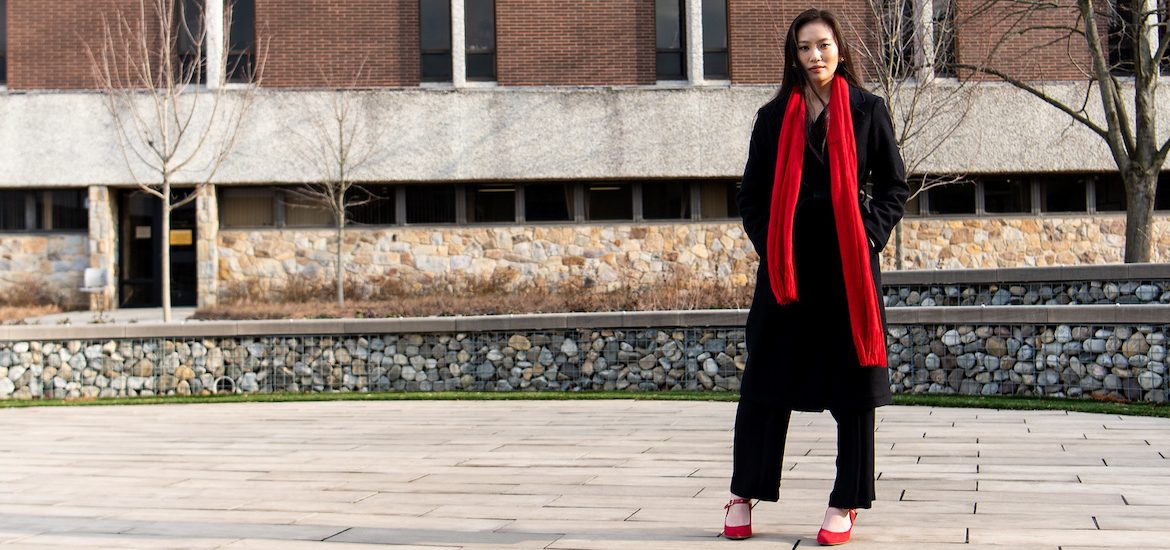Today, we talk to Terry Nguyen, who majors in both Music and Biomedical Visualization and Art with a specialization in graphic design. She is co-president of Rowan’s Neurodiversity Club, a newer club on campus. Terry shares details on her Rowan academic career and her experiences as a neurodivergent student. She also discusses what the Neurodiversity Club is, what its members do and her personal responsibilities within the club.
What brought you to the Biomedical Art and Visualization program?
A little background information about myself would be that I always loved art. But I also really valued the importance of scientific endeavors, and just general scientific literacy. I wanted something that could combine the two of them. But … I didn’t want to fully do science and then pursue art separately.
So my parents actually were the ones who discovered this program, because Rowan is one of the few ones that do offer this sort of interdisciplinary study to undergraduate students. Other places offer it at a graduate level, but not many schools offer this program for undergrad.
One of the big reasons why I actually chose Rowan University was because of the uniqueness of the program and the fact that Rowan granted opportunities for students who have an inclination for both the arts and the curiosity for the sciences to pursue those interests together.
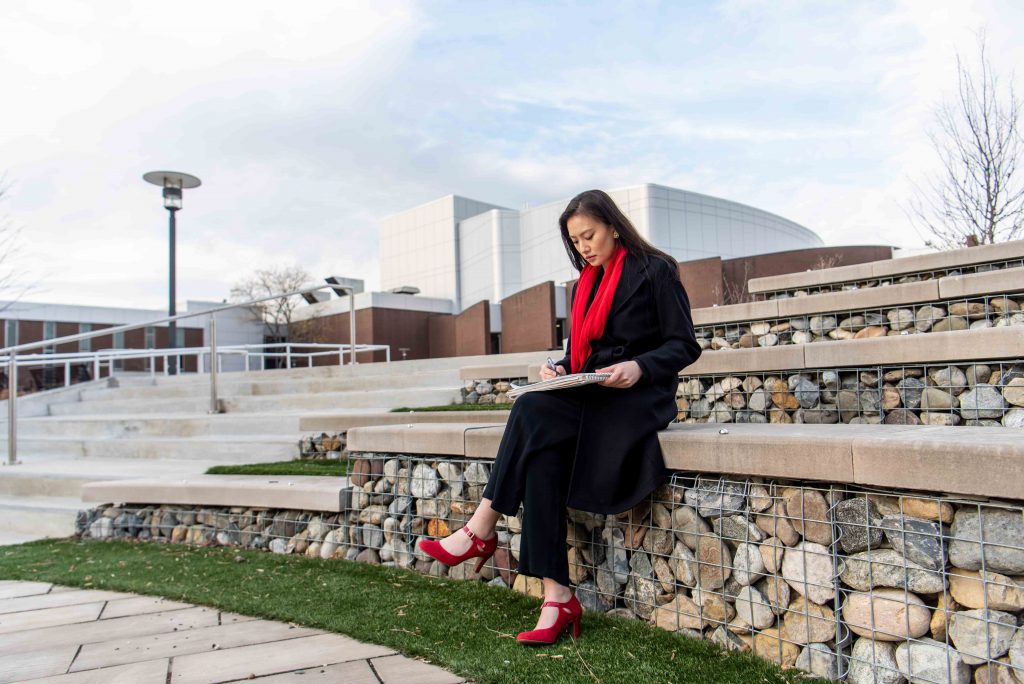
Where did graphic design then come into play?
Graphic design actually came into play because I took this one graphic design class last semester: Graphic Design III. I had never intended on pursuing a career or furthering my education with graphic design, but one of my professors expressed that I should consider Rowan’s program. He mentioned that I had an inclination and sort of a talent for it.
I also realized I love the thought process that is behind creating works for graphic design. I figured since I have the opportunity to study graphic design now, why not go for it and really see where my skills can take me.
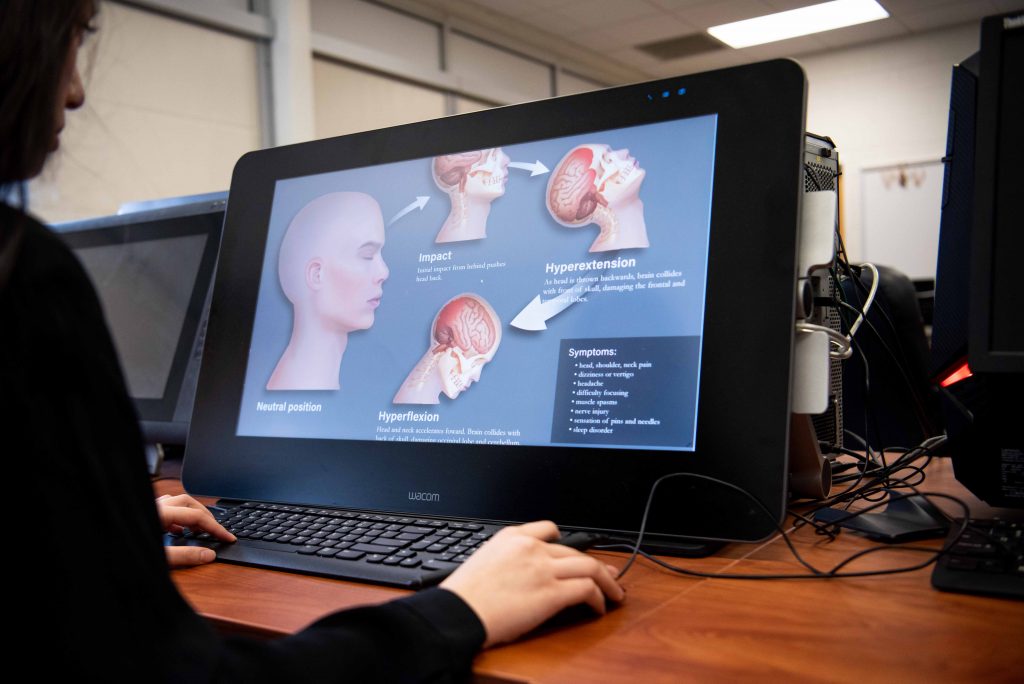
And then, the music degree?
I initially came to Rowan University for music, that’s my primary major. And then I added on the biomedical art and then the graphic design. So I’ve been doing classical piano since I was around 8 years old. Unfortunately, I’m not as active anymore, I don’t really do competitive piano anymore.
My private piano teacher is actually my professor here, so I came here because of her. I got offered a scholarship. I didn’t want to turn it down. And I felt comfortable with her as she knew my strengths and weaknesses. She’s a very special person in my life and inspired me to come to Rowan.
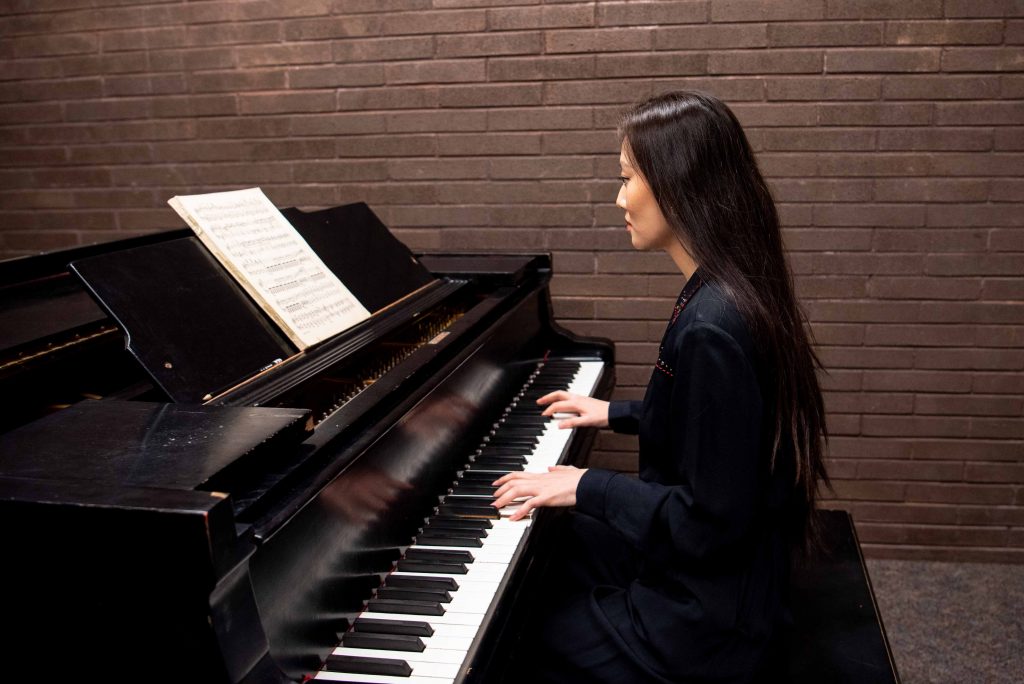
Where do you see yourself in your career with all of these great opportunities now presenting themselves?
Actually, I didn’t mention this in the beginning. But I am also a pre-medical concentration, I am a pre-med student. So my end goal is medical school. I’ve always loved art, and I’ve always loved music, [I’ve] always have wanted to help the community in some way. I want to find a way to incorporate these experiences and skills in my future medical or health profession. That is still a search I am going through.
I mentioned this in another interview that I initially wanted to become a physician because I had my own mental struggles. And I realized the importance of just general mental health. I wanted to be a psychiatrist for quite a while. But as I’ve gotten more involved with the medical field, and just spending more time learning about it, I found that it was very interesting. I’m still trying to figure out what exactly what to do initially with psychiatry, but now I’m just expanding my horizons a bit, but it is definitely in the medical field.
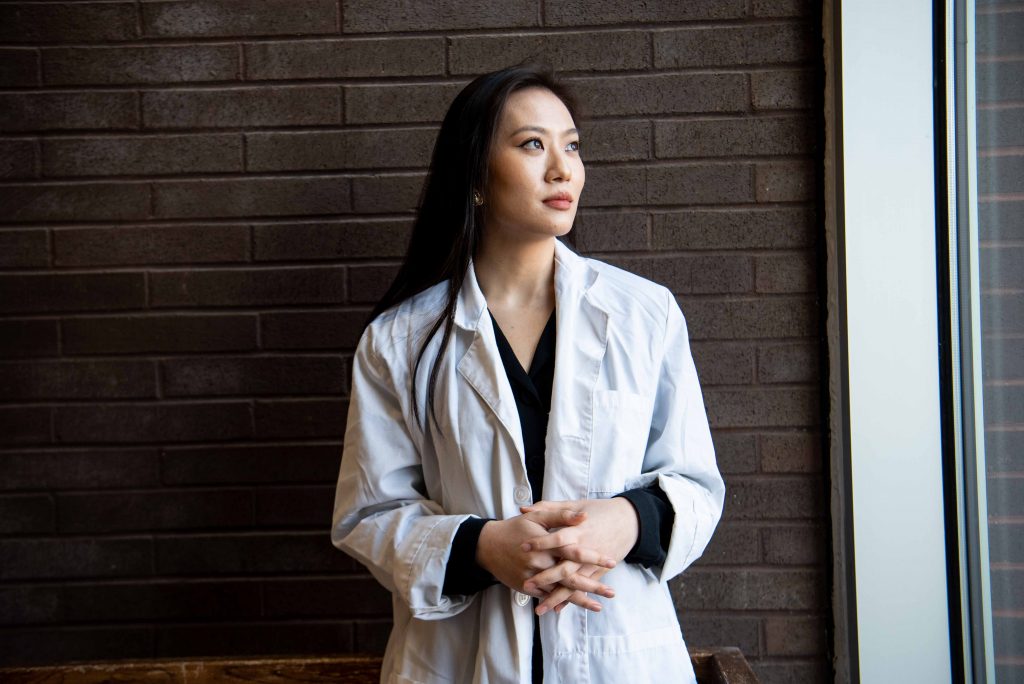
Tell me about the Neurodiversity Club.
The Neurodiversity Club has a mission of creating a warm and welcoming environment that encourages people in our diverse community to be open and comfortable in. And so we want to promote everyone’s confidence and success, whether it’s in school or in their personal lives, we want to serve as that sort of center for people to share their thoughts and to be open and transparent.
When does the club typically meet?
Sometimes we’re virtual, sometimes we’re in person, just because of the nature of flexibility and availability. *
How did you find out about the club?
I actually didn’t hear about the club until Spring of 2020. I got an email from Director John Woodruff, because I was affiliated with the Academic Success Center [recently renamed the Office of Accessibility Services].
Who is welcome in the club?
Anyone who is a part of the neurodiverse community. It’s actually funny, because normally, for me, at least, I actually don’t know why each person is there. So I know I have ADHD. However, I don’t know about the person next to me, unless they’re comfortable enough to say it. We don’t pry. But typically, there are people who are affiliated with the Office of Academic Success. So essentially, they need accommodations of some sort. And so we welcome those people into our club. Anyone is free to join.
Could a member or student come in and not have to explain themselves whatsoever?
Yes. No explanation is needed.
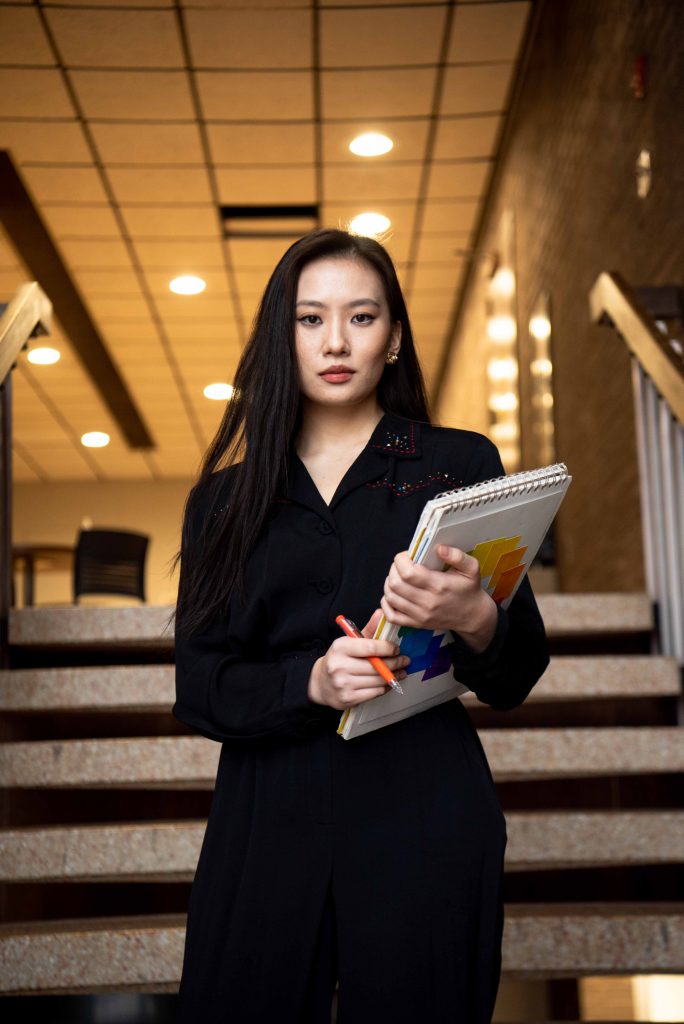
What is your personal role and responsibilities associated with the Neurodiversity Club?
Besides attending the meetings, one of the biggest things that we’re trying to do now, because we’re such a relatively new club, is actually being an official SGA-chartered club, because we are not yet SGA affiliated. So that is something that we’re currently working on right now. That is one of my responsibilities. I work with everyone — I don’t want to say it’s just my responsibility, because everyone has been doing their part. Every members holds different responsibilities that are all important.
We’re also working on promoting the club. So those are things like outreach because our numbers are relatively low. Therefore, we are working on promoting our mission and purpose as a club. We want everyone to know that this campus is accepting and inclusive of everyone and anyone.
How did you first get involved with the club?
I just wanted to see what it would be like, because in high school, I was really ashamed of myself simply because I had ADHD and because I needed accommodations. It was a struggle I sort of hid from everyone. I was happy with my experience so far at Rowan — it was much more open and welcoming in comparison to high school.
At first, I was worried about joining a club that says “neurodiversity.” That was like, Am I calling myself out for this? But I was like, you know what, everyone has been so nice and lovely here. You never know who you will meet and who you click with. So I wanted to give it a shot and I just found it was a really interesting club that brought me a lot of comfort.
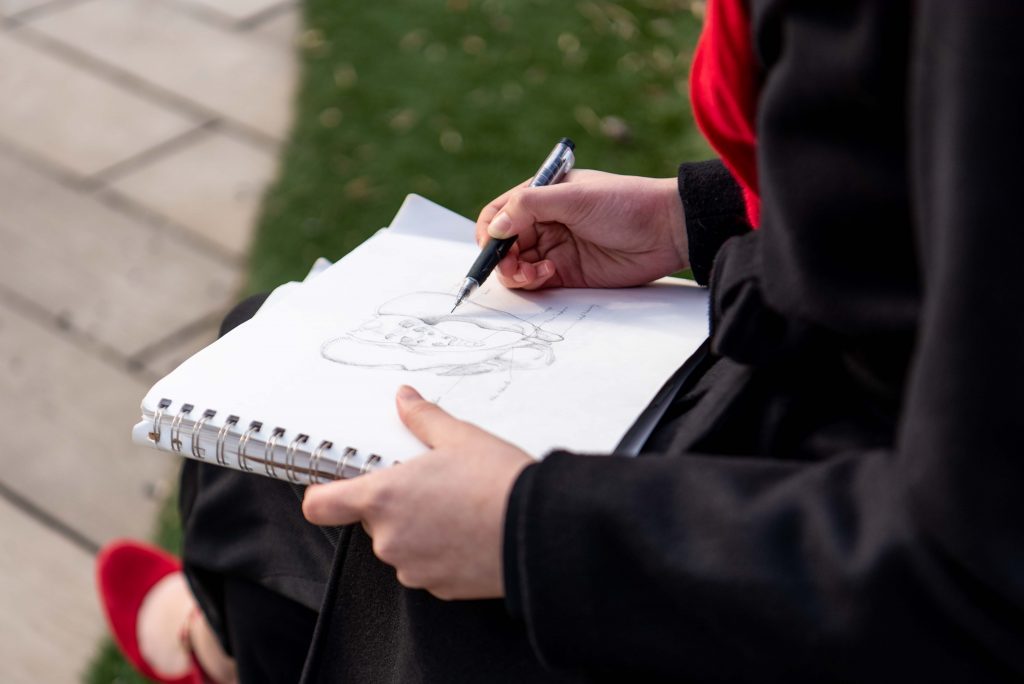
What are the types of activities that you do at your club meetings?
We usually have like a meditation session at the beginning of each one, just so everyone can take some time and breathe — sometimes we forget to do that. And then we ask each other just questions. How was your day? How are you feeling? Is there something you need help with? Are there any professors that concern you? We simply just talk to each other.
Sometimes we play games as well. I think recently, we played Hangman and we also go to Rowan After Hours [RAH] events. We try to plan things together and try new activities that practice being more vocal and speaking up for ourselves.
What is your favorite part of the Neurodiversity Club?
It has to be like the people and environment that we create. It is important that everyone cooperates so members can be open and promote a judgement-free zone. I have not once felt uncomfortable. I think that’s the biggest takeaway from the whole experience — the people make the team work.
What are your goals and aspirations for the future of this club?
So, in that regard, the club does share some similarities with what the Center of Neurodiversity has advocated, which is making sure that students feel successful, and they have the chance to pursue their ambitions. That is the end goal of both the center and the club. We want members to know that students are able to achieve not only in school, but also once they’re out of school, and that they have taken the right steps and have received the help that they needed here at Rowan.
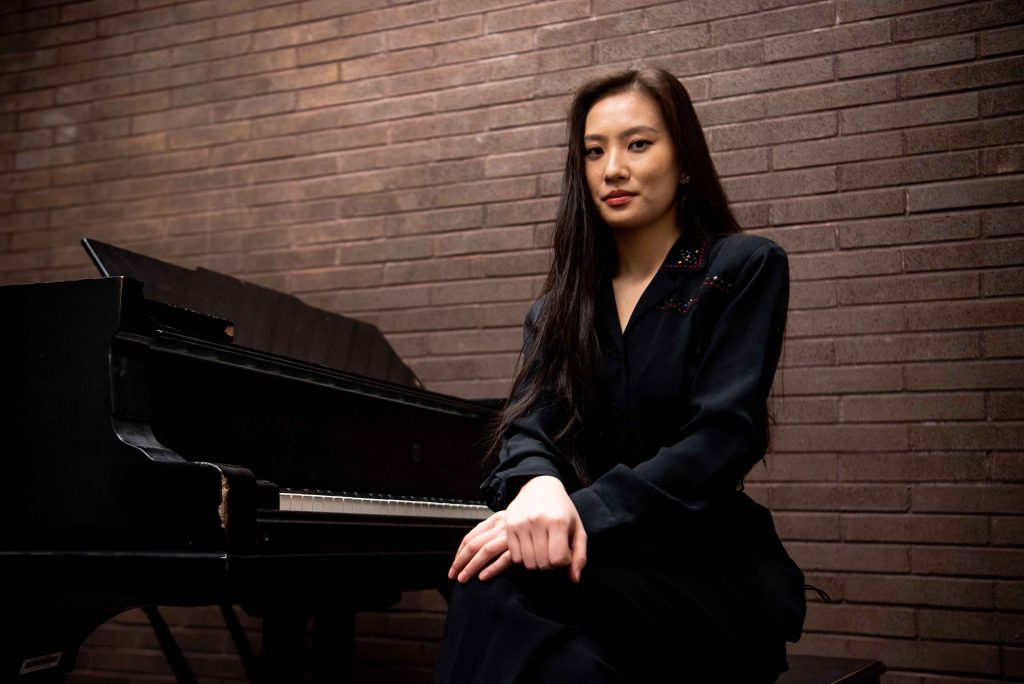
How did you first get connected with the Office of Accessibility Services?
I first got connected because I was in need of accommodations. Recieving accommodations in high school were very tough for me, simply because I had to go through my parents and it was a family sort of effort to get them. My high school was very reluctant to give it to me because they were not sure that ADHD granted accommodations. I went to a school that wasn’t super cooperative. It took about half a year before I got the accommodations I needed. And I had to go to a lot of health professionals just to get the paperwork, and there were meetings back and forth between administrators.
I went to seek accommodations for Rowan with my mom and my dad. We were able to get them super easily, and the people we talked to were very friendly. When we got to the office my parents told the workers that I needed extended time for tests because I received it in high school. We showed them paperwork and they said, “Yeah, that’s everything we need, how much time would she like?” And then they gave everything that I needed. It was a super easy process.
But they even went above and beyond. They said we have academic coaches and tutoring available here. They also expressed that isolated testing is available for me as well.
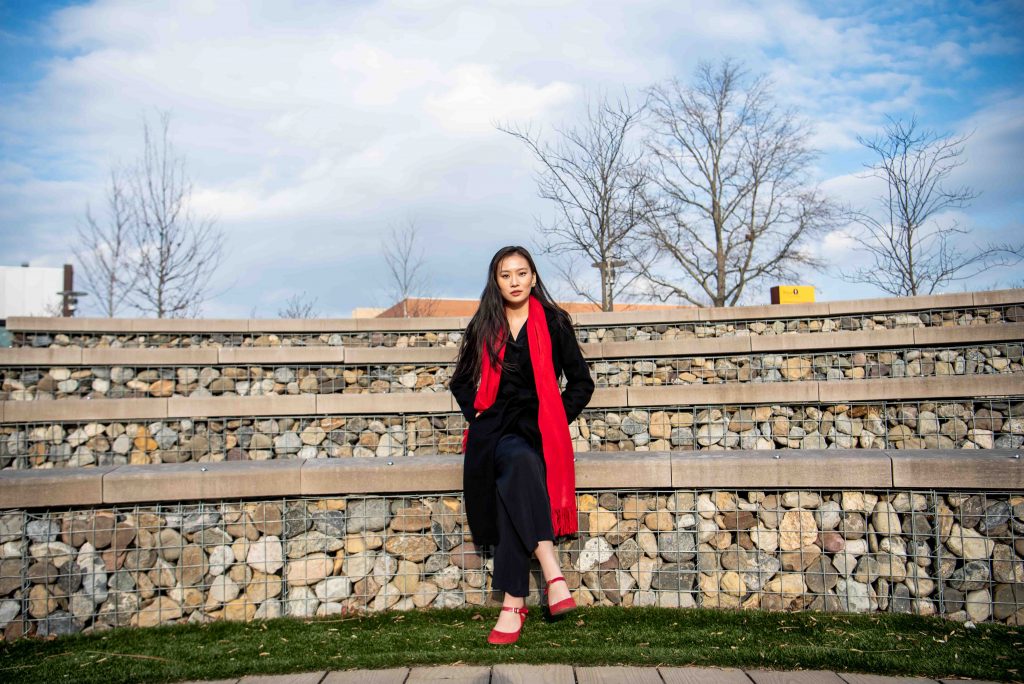
What accessibility resources have most impacted your Rowan career?
Definitely the extended time for isolated testing, because … this is very interesting for me because especially in the high school I attended, having someone with accommodations in AP or honors classes was very rare.
What would you say to a student who is interested in attending the club, but is a little bit nervous, too, because they’re reluctant to reveal themselves as being neurodivergent?
Yes, that was my exact concern as well. I’d say give it a try, because what happens in the room sort of just stays in the room. We don’t go and tell your business to the world. I don’t think anyone has the urge to do that either. So just try it and see it for yourself.
* Spring 2022 meeting days/times: Tuesdays 6:30pm-7:30pm, Laurel Hall 120 and via Zoom
Like what you see?
Photos by:
Stephanie Batista, junior business management major

